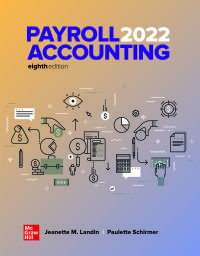Question
Anchen Medicine is a publicly-traded biotech company based in Irvine. It has 200 scientists and technician besides a team of 20 middle managers and top
Anchen Medicine is a publicly-traded biotech company based in Irvine. It has 200 scientists and technician besides a team of 20 middle managers and top executives. It awards stock options to all of its employees. The companys fiscal year ends on June 30. This years fiscal year ends on June 30, 2021.
During the three fiscal years of 2018-2020, the company had a fixed value stock option plans. That is, each year, the company granted its employees stock options with fair value of $160 million a year. These stock options all had a vesting period of 4 years. That is, employees had to work for the company for 4 years before they could exercise any of the stock options.
On August 1, 2020, the beginning of this fiscal year, the company modified its stock option plan. During the year, the company still granted $160 million worth of stock options, but changed the vesting period to 5 years. Assume tax rates are 20% for all years.
It is near the end of the fiscal year. Ana Farrell, the CFO of Anchen Medicine, is working hard to close the books for the current year. She is also preparing for a conference call with financial analysts and some investors. At the conference call, the CFO and CEO will explain the operating and financial performance to the audience. The CFO expects a lot of questions from the audience due to poor sales and bad debt expense related to the Covid19. Some investors may ask why the company is still granting stock options when the performance is bad.
Right before this years fiscal year end, Ana had a meeting with the audit committee and external auditor. In the meeting, the auditor showed some data analytics results, which indicated that the exercise price of stock options were set at the lowest point in the stock option grant year for all years 2016-2021. This caused some concerns among the members of the audit team and audit committee. They need an explanation from Ana.
Soon afterwards, Ana met with the CEO, Mike Goldberg. Ana discussed with him this years net income, cash flow, and other performance indicators, and the concerns about stock options. During the meeting, Mike started to complain about the auditors. Their audit fees were so high, yet every year they never found any mistakes made by the staff. He dismissed auditors concern about the exercise price of stock options.
Near the end of the meeting, the CEO said he heard that many other companies in the industry report non-GAAP earnings in the conference call. The CEO would like to follow other companies practices and asked the CFO to calculate a non-GAAP earnings by excluding stock option related compensation expense. The CFO just finished the estimation. The non-GAAP number will meet the financial analyst forecast by a few cents while the GAAP earnings would be below analyst forecast.
Question 7: (this question is not so directly related to the case materials)
Please explain the differences between two social-economic systems: capitalism and socialism, and then discuss their implications to ethics in the workplace. (20 points, 5 points for each explanation/discussion item)
Step by Step Solution
There are 3 Steps involved in it
Step: 1

Get Instant Access to Expert-Tailored Solutions
See step-by-step solutions with expert insights and AI powered tools for academic success
Step: 2

Step: 3

Ace Your Homework with AI
Get the answers you need in no time with our AI-driven, step-by-step assistance
Get Started


